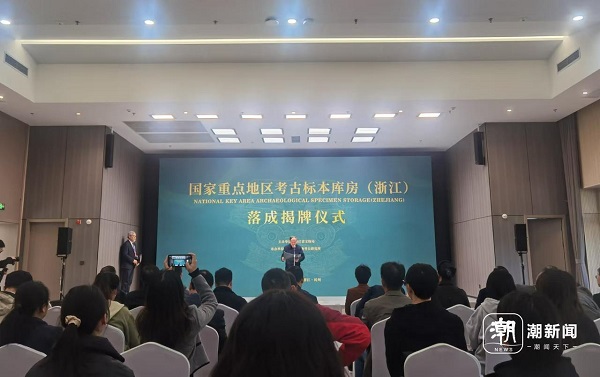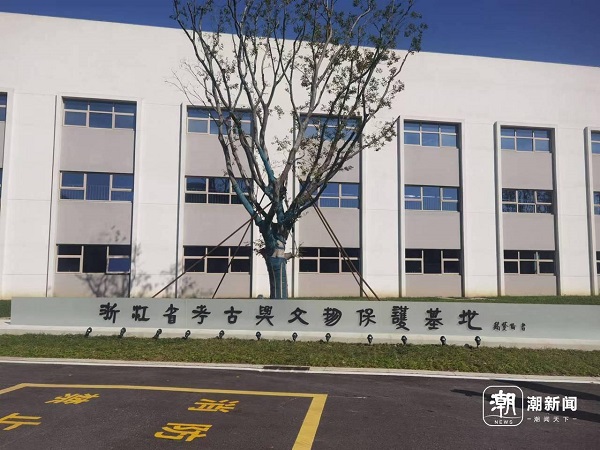China's first national archaeological specimen storage opens in Liangzhu

China's first National Key Area Archaeological Specimen Storage opens in Yuhang district, Hangzhou on Nov 26. [Photo/tidenews.com.cn]
China's first National Key Area Archaeological Specimen Storage opened in Yuhang district, Hangzhou, on Nov 26.
Situated between the Liangzhu Museum and the Archaeological Ruins of Liangzhu City, the repository is part of the Zhejiang Archaeology and Cultural Heritage Protection Base, which spans 14.5 hectares and has a total construction area of 37,000 square meters.
The facility is designed to integrate the excavation, preservation, restoration, research, and display of archaeological specimens. It addresses previous challenges of limited capacity, scattered storage, and outdated facilities. By emphasizing systematic protection and management, the repository supports major projects like "Tracing the Origins of Chinese Civilization", "Archaeological China", and Zhejiang's "Morning Star" archaeological initiative.
Zheng Jianhua, deputy director of the Zhejiang Cultural Heritage Bureau, highlighted the repository's role as a cultural gene bank for Zhejiang and East China, as well as a comprehensive platform for archaeological innovation. He also stated that it aligns with national plans to advance Chinese-style archaeology and strengthens Zhejiang's position as a leader in cultural heritage preservation.
The facility, operational since September, is expected to bolster China's archaeological and cultural research capabilities, contributing to the exploration of Chinese civilization and the promotion of traditional culture.

China's first National Key Area Archaeological Specimen Storage opens in Yuhang district, Hangzhou on Nov 26. [Photo/tidenews.com.cn]
-
Visionary Pathway - Hangzhou Playbook
July 15, 2025



